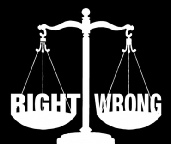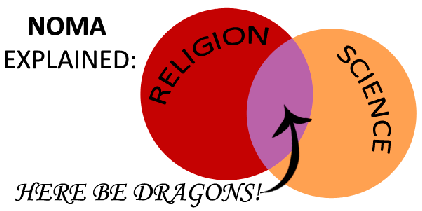Post 46. 07/12/2018 continued . . .
Rational Moral Progress
Mechanical vs Spiritual Causation
A moral code is objectified & abstracted sentiment, with reasons for why they should apply in particular cases. Some people find homosexual behavior unnatural & disgusting, so they treat those who engage in such corrupt behavior as devalued moral agents. But modern science has found that sexual identity is largely innate instead of a rational choice. Therefore, Shermer advocates that we abandon centuries of visceral prejudice in favor of an intellectual judgment. But such revolutionary social changes, like slavery & women's suffrage, require both demonstrations of moral superiority and of broad social support.
Philosopher David Hume famously asserted that “you can't derive an ought from an is”, implying that scientific evidence is not sufficient to mandate a moral rule. He also said that “reason is, and ought to be, the slave of the passions.” But Shermer argues that those truths cannot deter us from imagin-ing a better reality, and like MLK, working to implement that dream against all odds. Until the 17th century Enlightenment, most people believed implicitly that slavery (or the divine right of kings) was a manifestation of a natural hierarchy of humans. And they fought passionately against the notion that “all men are created equal”.
As opposed to religion & faith, Shermer believes that science & reason are the drivers of modern moral progress. But he admits that a BothAnd compromise is necessary for accom-modating human instincts with their rational faculties. “It's a matter of balance between deduction and induction – between reason and empiricism . . . a blend of sensory data and reasoned theory.” Most religions, and hence most societies prior to the Enlighten-ment, held magical & spiritual theories of causation. But secular Science began with a mechanical clockwork model of causation, with natural laws in place of magical powers, and implacable energy replacing spiritual beings.
It was assumed that physical sciences had nothing to do with metaphysical morality1. Then, in the 20th century, Quantum mechanics forced physicists to think more like spiritualists. Un-like classical mechanics, Quantum causation is spooky & unpredictable, like ancient demons. Likewise, human freewill doesn't always follow customary paths. So moral laws must take into account the sometimes erratic behavior of freewill agents. This means that simplistic notions of Good-versus-Evil are no longer feasible. Therefore, in place of a permanent set of commandments, with prescribed punishments for capital offenses, modern science-based societies adjust & amend their laws according to more fluid rules of evidence.
To allow for flexibility, rather than a decalogue of dogmas engraved in stone, Shermer proposes a single moral precept, similar to the Golden Rule. He calls it the “principle of inter-changeable perspectives”. Everything else we need to know can be derived from that fundamental man-in-the-mirror approach to moral agency. He then applies his principle to some of man-kind's thorniest dilemmas : slavery, women's rights, gay rights, etc. And the key question in each case is “who has what rights, and why”.
Post 46 continued . . . click Next




 NEXT
NEXT
 BACK
BACK
 Forum
Forum











